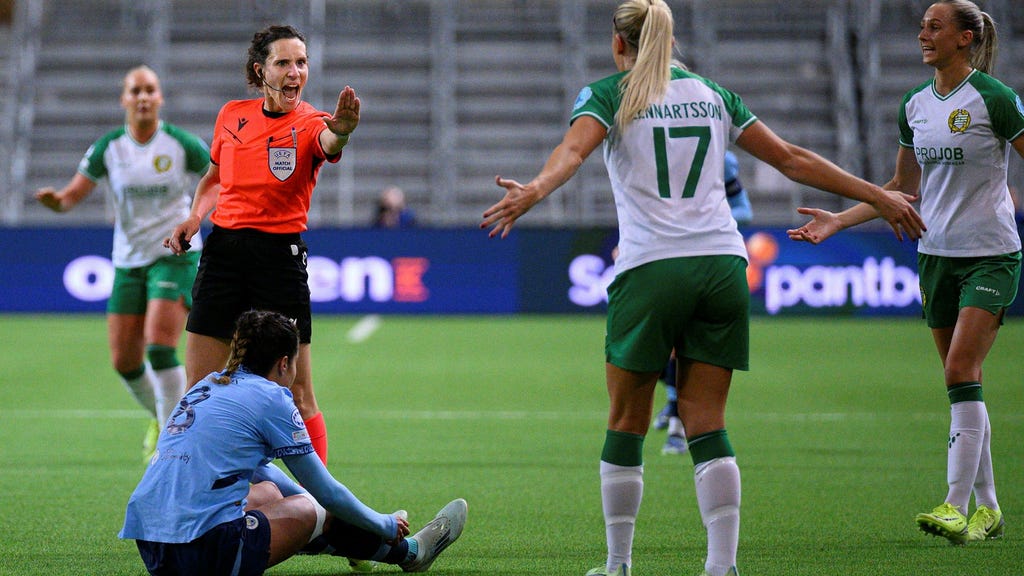The upcoming vote to award the 2034 FIFA Women’s World Cup to Saudi Arabia mirrors the undemocratic processes often seen in dictatorships. There are no other contenders, a situation that even Swedish national team player Kosovare Asllani finds strange. However, this reality is becoming increasingly commonplace in the world of mega-sporting events. Men’s World Cups have grown into such enormous undertakings, requiring vast resources and infrastructure, that only a consortium of nations or a wealthy, authoritarian state can realistically host them. This trend is now spilling over into women’s football, with the Saudi Arabian bid being a prime example. The lack of competition and the inherent ethical dilemmas surrounding a Saudi Arabian World Cup raise serious concerns about the direction of women’s football and the role of sports governing bodies in upholding democratic values.
The Swedish Football Association’s decision to vote in favor of Saudi Arabia further underscores the complex political landscape surrounding these events. While abstaining from the vote would have been the ethically sound choice, it could potentially jeopardize Sweden’s future bids to host tournaments. There is a palpable fear of retribution within football’s governing bodies, a sentiment fueled by past experiences where opposing powerful figures resulted in missed opportunities. The case of Lars-Christer Olsson, a former football executive who clashed with then-UEFA president Michel Platini and subsequently witnessed Sweden’s chances of hosting events diminish, serves as a cautionary tale. Thus, the Swedish FA’s decision likely stems from pragmatic self-preservation rather than a genuine belief in the touted benefits of a Saudi Arabian World Cup.
The narrative surrounding the supposed positive impact of major sporting events on a host nation’s democratic development is wearing thin. The promises made prior to the 2008 Beijing Olympics proved hollow, and similar claims about Saudi Arabia hosting the Women’s World Cup ring equally false. FIFA’s assertion that the tournament could be a ”catalyst for future reforms” and contribute to ”positive development in human rights” strains credulity. While the Olympic movement has attempted to distance itself from authoritarian regimes that use sports to enhance their image, football’s governing bodies seem to be moving in the opposite direction, aligning themselves with these regimes while simultaneously reducing transparency and democratic processes within their own organizations. This cozy relationship raises questions about FIFA’s commitment to human rights and its willingness to challenge oppressive regimes.
FIFA’s controversial sponsorship deal with Saudi Arabia’s state-owned oil company further highlights the ethical quagmire. This deal, met with protests from numerous female players, epitomizes the growing trend of intertwining sports with powerful, often problematic entities. While prominent figures in women’s football often voice their criticism on such matters, their stance becomes more complicated when personal financial interests are at stake. The past criticism of Qatar’s hosting of the Men’s World Cup saw female players deflect questions about their own financial ties to clubs owned by authoritarian regimes, arguing the sums were too small to warrant comparison. However, as the financial stakes in women’s football increase, such justifications become less tenable.
The recent farewell to Caroline Seger, a long-standing figure in Swedish women’s football, provides a relevant case study. Discussions about Seger potentially concluding her career with Manchester City, a club owned by the United Arab Emirates, a nation with a questionable human rights record, have largely ignored the ethical implications. This silence contrasts sharply with Seger’s own history of advocating for progressive causes within women’s football. The UAE’s criminalization of homosexuality, with punishments including imprisonment and even the death penalty, presents a stark contrast to the values often championed by Seger and the broader women’s football community. This situation underscores the difficult choices facing players as the financial landscape of the sport evolves and the lines between personal gain and ethical principles become increasingly blurred.
Finally, the on-field behavior of some women’s teams, particularly Manchester City, reveals a concerning trend towards cynicism and gamesmanship. Their display of exaggerated injuries, diving, and time-wasting tactics mirrors the unsavory aspects often seen in men’s football. While such behavior might not be unique to Manchester City, the lack of condemnation within women’s football signals a potential shift in the sport’s culture. In contrast, sports like handball, with a tradition of condemning such tactics, offer a different model. The muted response to increasingly cynical behavior in women’s football raises concerns about the future direction of the sport and the preservation of its values. The confluence of these factors – undemocratic bidding processes, questionable sponsorships, ethical dilemmas for players, and a rise in unsportsmanlike conduct – paints a complex and worrying picture for the future of women’s football.














